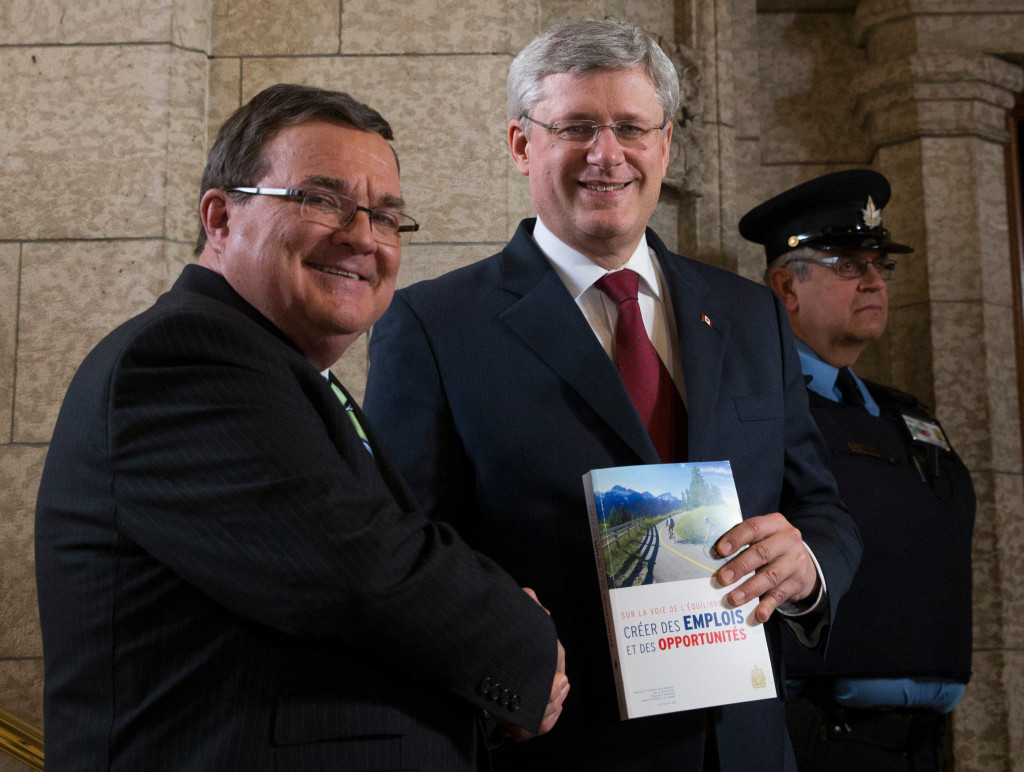
A conversation with New West—Burnaby MP Peter Julian
By Bex Peterson, Editor-in-Chief
“At the time, Douglas College was just a series of trailers at the corner of McBride Boulevard and 8th Avenue in New Westminster,” said MP Peter Julian in an interview with the Other Press earlier this month. “That temporary campus was where we would put together the Other Press—sometimes working all night to get it right.”
Peter Julian has been a Member of Parliament representing the New Westminster—Burnaby riding since 2004. A community activist and prominent member of the NDP, Julian has been described by The Georgia Straight as “one of the region’s hardest working politicians.” Julian is also a Douglas College alumnus.
“I played basketball for Douglas College,” said Julian. “I was in a jazz quintet as well […] and, very proudly, was one of the sports reporters for Douglas College’s the Other Press and the Chair of the Board of the Other Publications Society.”
Julian was encouraged to write for the paper in the early ’80s by former editor of the Other Press Ian Hunter, a personal friend of his.
“I just got really attracted to the idea of having a student newspaper that had the guts and the courage that the Other Press has,” said Julian. “Being an independent student newspaper, I thought, gave a lot of scope to tackle issues such as social justice and economic justice as well as reporting on the life of the college community.”
Julian experienced the transformation of the school and its paper firsthand, as Douglas College moved from the trailers to a brand-new campus.
“It was quite nice to see the growth of Douglas College and the growth of the Other Press, and the professionalism that was instilled in the publication as we moved to a campus that was really worthy of Douglas students,” said Julian.
The early ’80s were a tumultuous time for BC politics. The dominant party of the era was the now somewhat defunct BC Social Credit Party, a right-wing party that governed the province from 1952 to 1991 with only a three-year break in the ’70s during which the NDP took control. Under Bill Bennett in the late ’70s and early ’80s, the “Socreds” put forward a “restraint” package of bills along with a new budget that cut social spending for the province. This resulted in a union-led resistance in 1983 called “Operation Solidarity.”
“Provincially, we were seeing a pushback against the cuts and compressions that led to poorer service and ultimately has contributed to a lower quality of life now if you look 30, 40 years later,” said Julian. “Some of the cutbacks we were seeing from the federal and provincial government in the early 1980s have led to—as everyone predicted—more struggles for regular families.”
This was one of the many issues the Other Press covered during this time, as well as resistance against widespread nuclear proliferation, cuts to affordable housing projects across the country, and rising costs for post-secondary education. If this all sounds a little too familiar, according to Julian, it’s because many of the issues we’re facing today have their roots in the political actions of the ’80s.
“When I was working for the Other Press, about 16 percent of our housing stock in Canada was social housing or affordable housing, cooperative housing,” said Julian. “In Germany it was a similar level. And now, 40 years later, Germany’s still maintained this 16 percent of housing stock that’s being used for social housing, cooperative housing, affordable housing, subsidized housing, and in Canada it’s fallen to about three percent.
“That is the genesis of the crisis, that we are lacking—easily—half a million to a million affordable housing units that should have been built over the last 40 years and weren’t. That’s why so many students and so many others are struggling to get affordable housing, and to find affordable housing now.”
Although he said he enjoyed his time with the Other Press, Julian went on to complete his bachelor’s degree in political science at the Université du Québec à Montréal and did not continue pursuing journalism.
“Oh, I knew that I could not be a journalist!” Julian said. “To be a really effective journalist, I believe you have to be nonpartisan, and I felt a deep commitment even then to social change and social justice. I was already starting to get involved in the NDP, so I thought to myself: To be really good at being a journalist, you still need to have that passion, but you can’t have a membership card in the NDP or the Liberal Party or any other party for that matter.”
Julian said that working with the Other Press gave him “a real respect for journalism that led me not to go into journalism; and that I think is actually a high level of respect to understand where the dividing line is between journalism and partisanship and understanding that I was on the other side.”
Student journalism has been on the frontlines of several important conversations throughout the country over the past few months, especially in Ontario, where Doug Ford has implemented a provincial plan to allow post-secondary students to “opt-out” of certain student fees. This plan could, according to Vice reporting on a province-wide survey, result in approximately 57 percent of students choosing not to pay student newspaper fees, leading to a significant decrease in funding for campus papers.
Julian was unequivocal in his support for student journalism.
“The Other Press and student journalists help to speak out against [social inequality] in a way that the commercialized media won’t,” said. Julian. “Until we have a really well-established and well-funded independent media in this country that can stand up to those entrenched interests, it’s student journalists—the Other Press and other publications like it—that will help to develop that pushback, and that is vital in a democracy. Otherwise we will slide into a more and more marginalized society where there’s just a handful of ‘haves’ and a whole ton of ‘havenots’ and no way […] for people to even get their stories out and communicated to a broader public.”
As for Julian’s favourite memory working with the Other Press?
“I think just… two in the morning, having beers and Hawkins Cheezies and feeling like over the next couple of hours we were going get it right and send it to the printers and we were going make a difference that week,” said Julian. “I see the standards [of the Other Press] just as strong if not even stronger now as they were 40 years ago, and that’s fundamentally important because we need the Other Press in New Westminster, and at Douglas College, and in fact in Canada. And we need a lot more Other Presses really around the world if we’re going to try and get the planet that we all want to see.”


